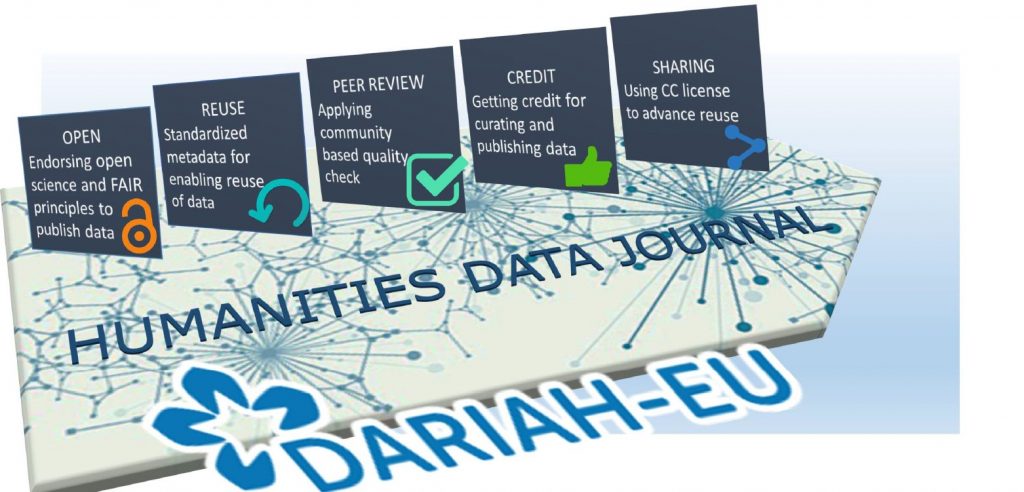Sharing and publishing Humanities data

The primary focus of our study is to develop a data journal framework together with the DARIAH-EU and DARIAH-DE and to make data relevant for scholarly use. In this process a user-centered approach will be used to address a wide range of research communities and disciplines within Humanities and to introduce a standardized data topology and data management workflow for disseminating and reviewing data. The framework of the data journal attempts to draw attention to the benefits of data publishing and the relevance of data management in the Humanities through connecting existing infrastructural components (data archives, repositories) and data management tools and services (ORCID, DOI, altmetrics) and putting them into the context of re-using data in scholarly work.
This study wishes to advance a dialogue on an institutional level on the significance of a consistent view on data publishing across the different disciplines in Humanities and on the implications of open methodologies and codes enabling data sharing and re-use. Within this discourse several aspect of the data lifecycle will be addressed, such as data management planning, legal issues relating to privacy and copyright, data security, and data preservation. The pilot also wishes to test the developed data journal blueprint and provide best practices of data publishing through experiments in local Humanities research groups and departments.
The framework applies the FAIR principles, which provide guidelines for enhancing the ability of machines to automatically find and use the data, in addition to supporting its re-use by individuals. The FAIR Principles do not present readily implementable procedures, and the practicalities of their implementation and application are subject to debate in many disciplines (Science Europe, 2018). However, by making their inclusion a main requirement of the Framework, better re-usability across disciplines is encouraged (Mons, 2017).
The pilot also showcases projects that can serve as best practices for publishing data and building an infrastructure to advance data sharing. These initiatives help us to define the context, elements and work process for developing and implementing a data journal. Some of the best examples for data publishing projects include HumaReC, a Swiss National Foundation Project, which aims at developing a certified and continuous data publishing digital research in the Humanities (Clivaz, 2017). Another example is project PARTHENOS that focuses effort more on improving and maximizing access to and the reuse of research data through the development of Humanities data template. Besides standardization in the areas of documentation of primary data and sources, the project addresses the issues of interoperability and semantics through defining a common semantic framework, and designing resource discovery. The ultimate goal in PARTHENOS is to define the technical development of the tools and services that are required to create the desired trans-humanities research infrastructure (Bassett, 2017). Finally, the project OPERAS has an ambitious goal to provide a pan-European infrastructure and services for open access to social science and humanities research. This can best be achieved by application to the Roadmap of the European Strategy Forum on Research Infrastructures (ESFRI), which supports the development and implementation of mature pan-European research infrastructures.
The main issues the development of a data journal framework wishes to address are the transparency of research in the Humanities, the primary principles of research ethics in distributing and sharing quality materials. Building such framework will involve a detailed description of research and communication flow and a breakdown of this process into single steps which will be supplemented by practical guidance for researchers how to publish data.



